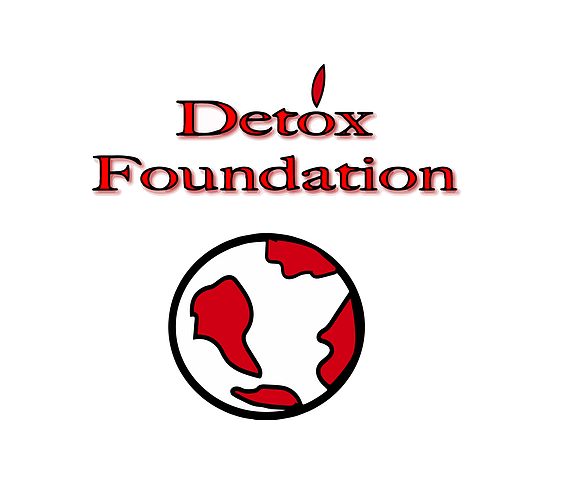Rebuilding Pakistan #2 - Mental Health
- Land of the Pure

- Apr 30, 2021
- 5 min read
Updated: May 3, 2021
By Mahnoor Saleem and Saad Umar

Mental health is an issue the world and its citizens have struggled with for many years now. From First World countries to developing and underdeveloped countries across the globe, despairing trends in mental health care are causing serious concern. As is the case with many countries battling the issue, around 10-16% of Pakistan’s population (14 million people from the entire population) is suffering from one or another kind of psychiatric illness.
According to a report by ‘International Journal of Emergency Mental Health and Human Resilience’, depression is still the most common psychological illness in Pakistan. Almost 6% of Pakistan’s population is currently suffering from depression, 1.5% from Schizophrenia, and 1-2% of cases have been recorded for epilepsy. In addition to that, a revealing assessment of the mental health situation in Pakistan by the World Health Organization has concluded that the province of Lahore has the highest number of depressives in the entire country. With 53.4% recorded cases of psychiatric illness, Lahore is leading other major hotbeds like Quetta and Karachi, each of which has its distressing share of its own emerging and existing cases (43.9% in Quetta and 35.7% in Karachi).
One of the fundamental reasons behind this spike in mental health disorders is the consistent deterioration of social and economic conditions in the country. Pakistan has been a victim of terrorism in the past, and further depressing socio-political conditions have indirectly or directly enlarged the toxic psychological baggage in communities. Although Pakistan's first mental health legislation was drafted in 2001, it has proven insufficient in providing necessary services to all those who required them. The national mental health policy and plan was last revised in 2003, and though the National mental health Authority has advised the government for better administrative purposes a number of times, their efforts have not produced any positive results so far. The 10th five years plan, which was devised in 2005, promised reformations in mental health policy, such as reversing the stigma of mental health in public discourse, campaigning for public awareness through education programs, and planning for better service development, but despite the theoretical foundations and maximum input in the plan, it has unfortunately failed to deliver.
It is understood that the policies formulated earlier by public and private authorities are no longer the sole reliable option. There is a crucial need for considerable modernization in methodology, workforce, and available equipment so that a large sector of academic and legislative cadre can find practical solutions to mental problems. Even at the time of writing, there are only five mental hospitals available in Pakistan, with operational psychiatric wards for the entire country of 22 million people. Though a significant rise has been witnessed in mental health facilities across the country, only 1% of them are available for children and adolescents.
The recent surge in suicide rates across the country, along with negligible awareness about mental health among the masses, is further contributing to the basket of problems. For far too long, we have all undermined mental health problems, in our homes, schools, workplaces, and among our communities at large. It is high time that we start prioritizing the issue as a matter of urgency, and move towards a caring and inclusive society. Meanwhile, the government of Pakistan must mobilize local initiatives at the grass root level that can help in curbing this menace. Famously said by Thomas Caryle, “He who has health, has hope; and he who has hope, has everything". Making groundbreaking efforts to curb the mental health pandemic will ensure for a more prosperous and positive Pakistan. One noticeable organization that is making transformational strides regarding mental health in Pakistan and worldwide is the Detox Foundation.
Detox Foundation, founded by Saad Umar in 2019, is an organization that focuses on mental health education among global communities. Prior to 2020, the organization’s focus was rooted domestically, in Pakistan. Shortly after, in the summer of 2020, Detox Foundation embarked on an internationalization strategy that led them to establishing branches in both the United States, and all over the world. To this date, Detox Foundation is based in over 9 countries and 9 states. Detox Foundation’s key method of raising mental health and drug-related awareness is through a standardized course that is taught at chapter locations. Their educational resources are also available on their website. The mental health course has 7 presentations and includes topics ranging from anxiety disorders to developmental disorders. For instance, The drug section includes 8 presentations in total and includes topics ranging from depressants to opioids. According to a UN report, 7.8% of Pakistan’s population are drug addicts, most of which are young people and university students. This statistic amplifies the urgency of needing education and awareness outlets regarding substance abuse, so as to ensure the wellbeing and healthy academic and personal progression of students.
While governments have a role to play in terms of legislation and infrastructural support, it is important to note that a large aspect of the issues surrounding mental health in Pakistan are rooted in us: society. As a population, we have consistently struggled to understand the reality and significance of mental health issues, shunning people voicing their concerns and stimulating a social construct that looks down upon vulnerability.
Detox Foundation is now collaborating with a variety of organizations, so as to achieve mass awareness of their message. The organization has had a total of nine organization partnerships to date. Furthermore, the organization has a special representative based in Pakistan whose responsibilities lie in creating chapters around their community.
The Detox Foundation’s course is especially designed to address disparities by providing access to students; many of which feel uncomfortable opening up to their guardians or caretakers, to valuable information relating to mental health. The course would enable students to be able to identify mental health disorders and understand how to approach them so as to benefit their wellbeing. Students in Pakistan who are dealing with various mental health concerns can access Detox Foundation’s course without any barriers, and without having to face the pressures of feeling judged or scrutinized.
Due to lack of mental health services, education, and awareness in Pakistan (and abroad), this initiative is of paramount significance. A majority of people in these communities are unaware of the importance of mental health, how it can impact daily functions, and how large a role it plays in routine activities and performance of one’s life regarding every facet of life. Detox Foundation works to rectify these discrepancies.
As we have always said, Pakistan has no bigger asset than its people. It’s about time we work to support those people.








Comments